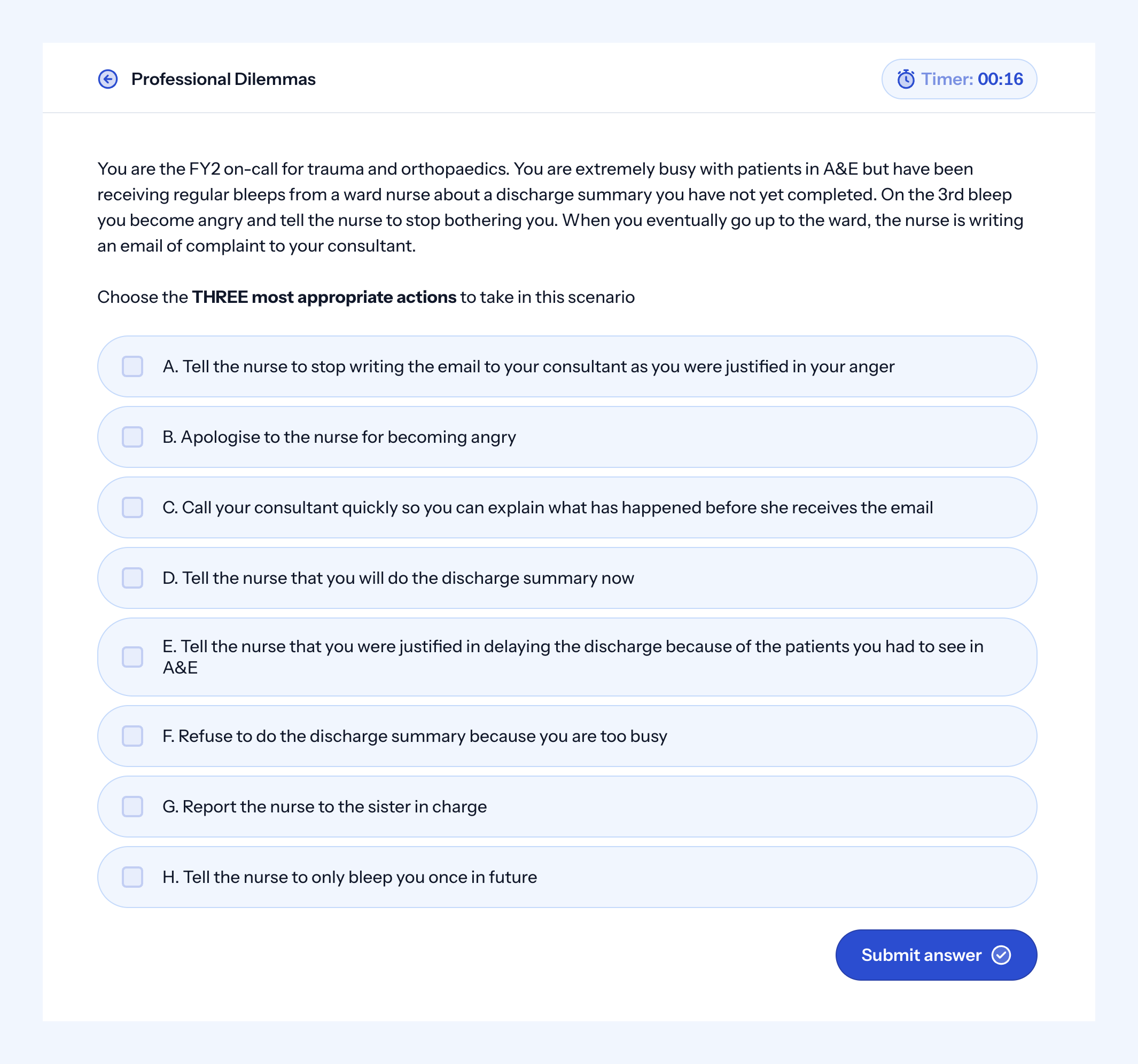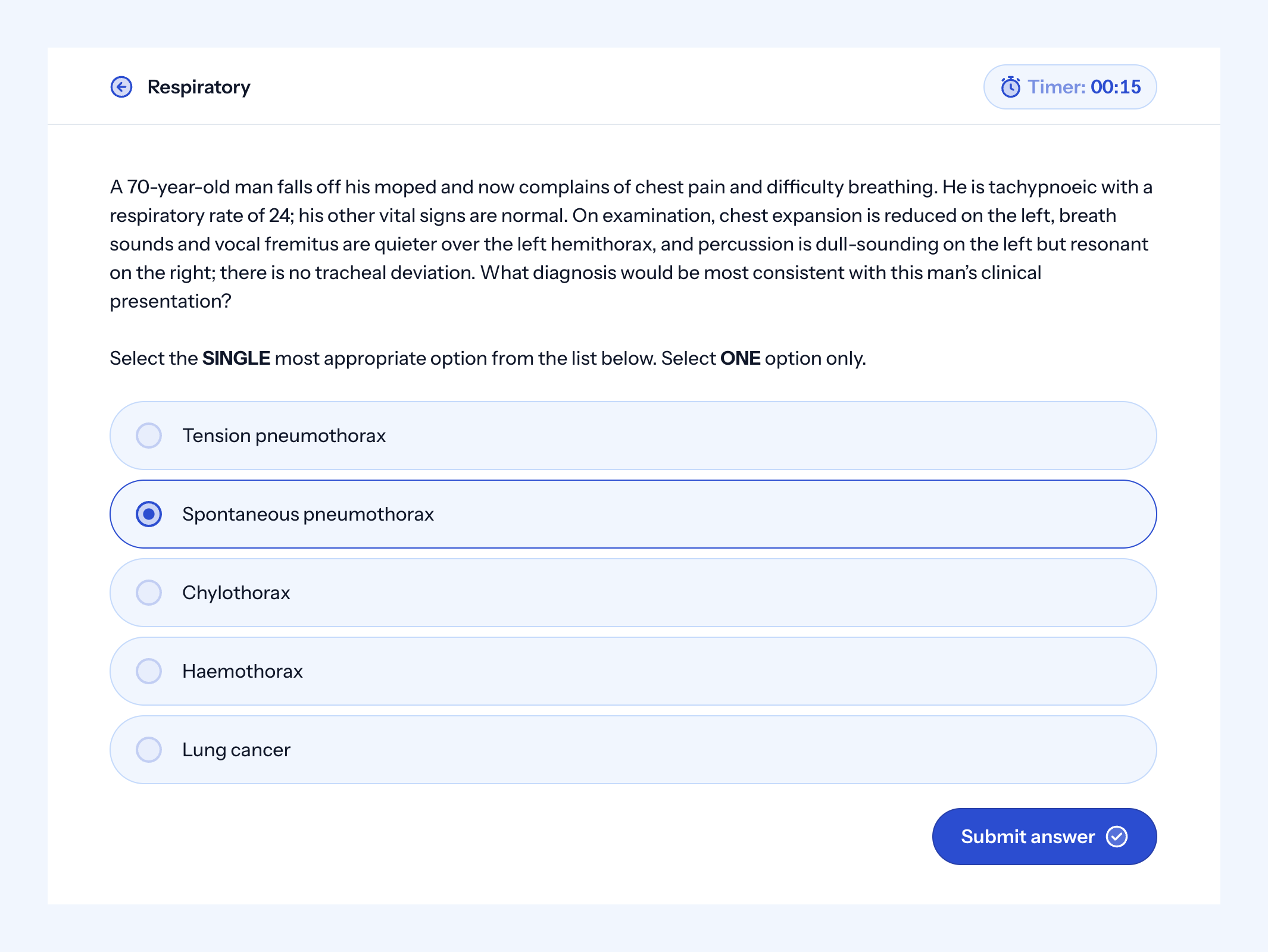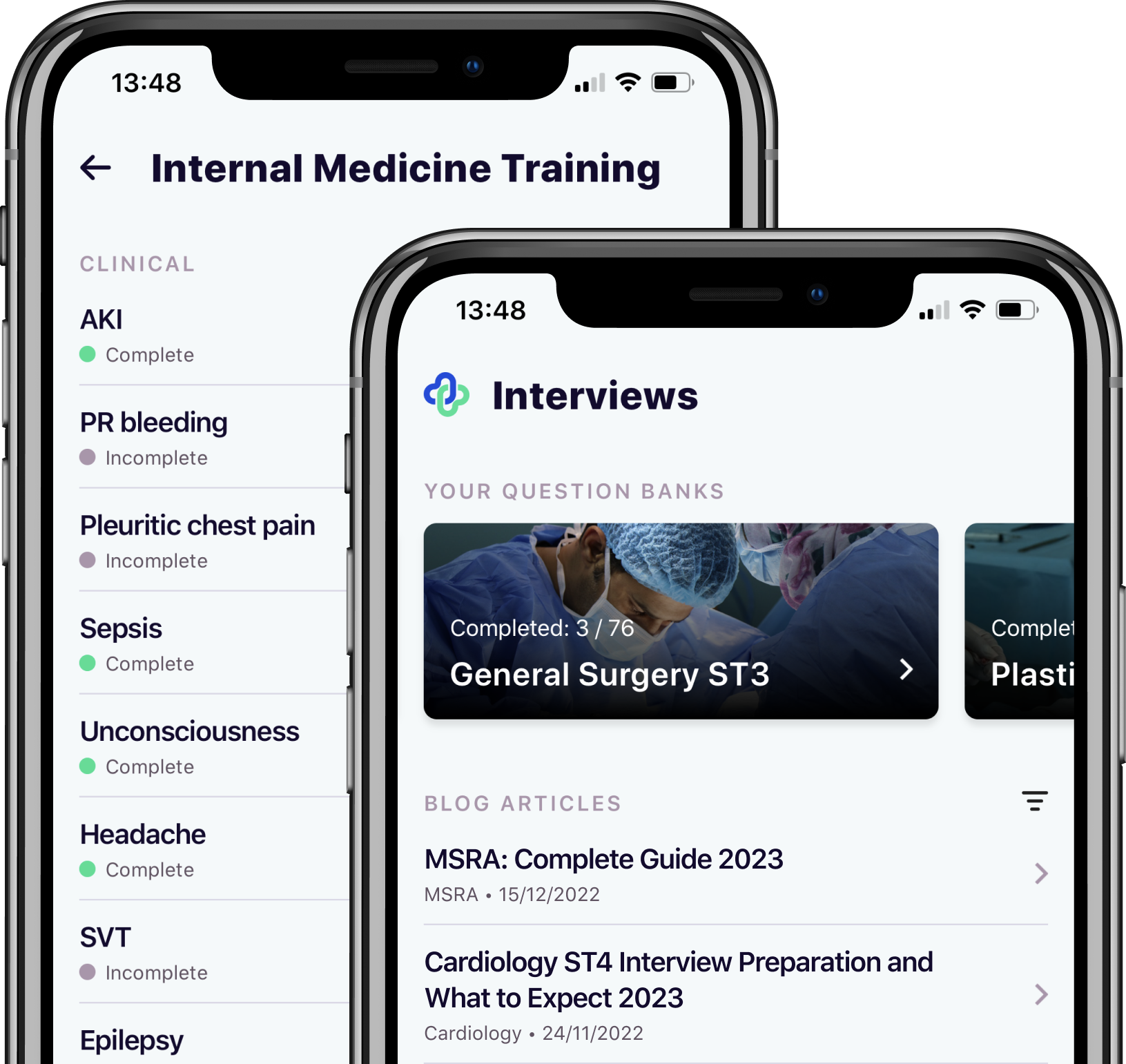
How to prepare for the 2025 GP Applications
The first round of General Practice (GP) applications for 2025 have opened and it’s important to remember that succeeding in your application for UK GP training requires preparation and practice. The GP selection process requires applicants to take the Multi-Speciality Recruitment Assessment (MSRA). Successful applicants will be considered based solely on their performance in the MSRA. Our adaptive MSRA question bank will help you prepare more efficiently.
GP Training Application Stage 1 – Longlisting
Longlisting takes place after you have submitted your application via Oriel. This stage is fairly straightforward, but just make sure you have submitted your application by the deadline, which this year is 21 November 2024. If you meet the eligibility criteria you will then be shortlisted to take the MSRA exam.
GP Training Application Stage 2 – Multi Specialty Recruitment Assessment (MSRA)
This stage assesses your clinical knowledge and problem-solving ability within the professional dilemma section. It is a computer-based exam comprising clinical and professional dilemma multiple choice questions. Your total score will be used to shortlist you for offers.
The format of the MSRA is as follows:
| Paper | Time | Question numbers |
|---|---|---|
| Professional Dilemmas | 95 minutes | 50 scenarios |
| Clinical Problem Solving | 75 minutes | 86 questions |
An example question from our MSRA question bank for each section can be seen below:
Professional Dilemmas Paper

Professional Dilemmas Question
Clinical Problem Solving

Clinical Problem Solving Question
You can find more information on the MSRA here.
Following your MSRA, a selection centre interview previously formed the third stage of the selection process. However, like in 2021 and subsequent years, in 2025, interviews will not take place, and instead, your ranking will be based entirely on your MSRA score, placing more emphasis on this stage of the selection process. To help you prepare effectively for the MSRA, we have an adaptive MSRA question bank, which will provide you with over four thousand practice questions. Our system automatically tailors the questions to your learning needs by assessing your areas for development and providing you with questions that will further support your learning and help you to achieve a higher MSRA score.
Our state of the art algorithms will help you progress faster than ever.Take your MSRA revision to the next level with our artificial intelligence powered, adaptive question bank
GP Training Application Stage 3 – Selection Centre Interview
Please note that the following information outlines the usual interview stage of the selection process; however, applicants for 2025 will not undertake this element. Instead, your ranking will be based entirely on your MSRA score. Congratulations! You have been invited to the selection centre for your interview, you have reached the last stage of the GP application. All your hard work is about to pay off, and you will soon be an RCGP trainee. In addition to the information below, our UK GP training material will provide you with both the content and the structure to ensure you get maximum points at interview.COVID-19 Information
What to expect on the day
This is the face to face ‘interview.’ Don’t be fooled though, this is not a standard interview where you are asked to explain why you have chosen to pursue a career in General Practice or present a portfolio.
Instead, there are 3x simulated consultation stations with actors and one written prioritisation question.
- 1x essay style written prioritisation question (30 minutes)
- 3x simulated consultation scenarios (10 minutes each). 1x patient, 1x relative/carer and 1x colleague (non-doctor) scenario.
The written prioritisation question is conducted in a room with the other candidates, you will each have a desk with a question booklet, and your answers will be handwritten. The simulated consultations are held in individual rooms with an examiner and the actor. These scenarios emphasise communication skills, not clinical knowledge, which can throw some candidates.
The interview makes up 40% of your overall score and will determine your ranking within the cohort.
Each selection centre is equivocal, usually in generic office buildings or sports stadiums. The rooms are non-clinical, and you will not need to examine a patient.
Dress in clinical, smart clothes.
How it is assessed
The marking scheme from the NRO (National Recruitment Office) assesses 4 competencies in Stage 3:
- Empathy & Sensitivity – Capacity and motivation to take in others’ perspectives and to treat others with understanding.
- Communication Skills – Capacity to adjust behaviour and language as appropriate to needs of differing situations.
- Conceptual Thinking & Problem Solving – Capacity to think beyond the obvious, with an analytical and flexible mind.
- Professional Integrity – Capacity and motivation to take responsibility for your own actions and demonstrate respect for all.
All four areas are assessed in the written prioritisation question. The simulated consultation scenarios assess all but professional integrity.
How to prepare for the GP Stage 3 selection centre
Practice, practice, practice!
You will only be able to score highly in this interview if you prepare. The simulated consultation scenarios are meant to reflect your everyday practice, but you must hit all areas of the mark scheme to score highly, this skill takes practice.
Our Medibuddy General Practice Selection Centre Interview (Stage 3) material has 50 written prioritisation questions with high scoring model answers and 18 simulated consultation scenario questions with excellent and average performing consultation videos, helping you get the marks you deserve and rank as ‘excellent’ in your interview.
Tips for scoring highly at the GP interview
Remember, unlike the Multi-Speciality Recruitment Assessment (MSRA/ Stage 2), the Selection Centre Interview (Stage 3) focuses on your communication skills, not your clinical knowledge. This is where many candidates can get into difficulty, focusing their attention on clinical management, rather than exploring the underlying issues.
You can get more tips on preparing for the selection centre here.
Useful Resources:

Take your subscriptions with you
Our mobile app allows you to access your interview and exam question banks wherever you are.





